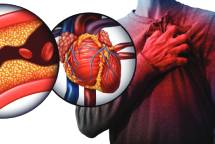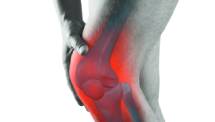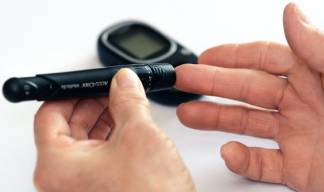- Topics
- Campaigning
- Careers
- Colleges
- Community
- Education and training
- Environment
- Equality
- Federation
- General secretary message
- Government
- Health and safety
- History
- Industrial
- International
- Law
- Members at work
- Nautilus news
- Nautilus partnerships
- Netherlands
- Open days
- Opinion
- Organising
- Podcasts from Nautilus
- Sponsored content
- Switzerland
- Technology
- Ukraine
- United Kingdom
- Welfare

Despite anti-discrimination legislation in the UK, a change in your health status may mean that you no longer have the same rights as a fully fit person to work at sea. But all is not necessarily lost, as Deborah McPherson and Sarah Robinson explain
The Equality Act 2010 outlaws discrimination against UK workers on the grounds of their race, gender, sexual orientation and a number of other 'protected characteristics'. This anti-discrimination legislation applies to seafarers on UK ships, except in one particular aspect: disability.
For most shore jobs in the UK, you must not be denied employment on the grounds of a disability or long-term health condition. This doesn't mean you'll get or keep every job you apply for, but you have to be given a fair hearing and 'reasonable adjustments'.
However, at sea, the legislation preventing discrimination on health grounds can't apply, because to take up a position onboard ship, you must have a medical assessment and meet statutory medical standards. This exemption from the anti-discrimination legislation is found in Section 60 of the Act, and also applies to certain shore jobs where a level of fitness is required for safety reasons.
Section 60 means, for example, that wheelchair or crutch users don't have the right to work onboard ship. Until fairly recently, you would also have been ruled out if you had a long-term health condition such as diabetes or rheumatoid arthritis, but the maritime authorities now consider whether seafarers with health conditions might be able to work onboard under certain circumstances.
Here are some examples of how the UK Maritime & Coastguard Agency (MCA) considers particular health conditions on a case-by-case risk assessment basis. The assessments are carried out by Approved Doctors – physicians approved by the MCA to carry out examinations for the fitness certificates known as ENG1.

ENG1 Assessments
Find out more about what happens at ENG1 medical assessments by visiting www.gov.uk and searching for ENG1.
Approved Doctors
If you have a query about your ENG1 medical, you should approach your local Approved Doctor. To find one, search for MCA Approved Doctors at www.gov.uk.


Allergies
A conference of MCA Approved Doctors in 2019 saw doctors urged to pay particular attention to the rise in allergies and intolerances, which can be difficult to deal with on many vessels and can pose an immediate risk to life. While doctors try to find a way in which candidates can improve their health to pursue a career at sea, if you have previously suffered an anaphylactic reaction, this might be cause for an ENG1 failure.
Arthritis
Approved Doctors also need to think carefully about the particular hazards and challenges an individual seafarer can encounter onboard ship when making their decisions about whether to approve/fail a candidate or issue an ENG1 with restrictions. For example, would someone with arthritis in their hands be able to hold onto rails and keep themselves safe when going up and down ladders and steep steps?
For a condition such as rheumatoid arthritis, a period of assessment is required to gauge medicine effectiveness, and seafarers may need to work in a job where they can access regular blood tests.
Asthma
Most seafarers with asthma would be considered fit to work, depending on how well they control their condition and how recent and severe episodes have been. For anyone who uses preventer inhalers, their continuing use as prescribed will be made a condition of certificate issue, and a good supply of reliever inhalers and a treatment plan must be carried onboard.
Blood-borne infections
including Hepatitis B or C or HIV
If a seafarer reports a blood-borne infection such as hepatitis B or C or HIV, it is not normally a reason for restricting their service, although the implications of any treatment must be considered.


Cardiovascular disease
When assessing the risk of a candidate, Approved Doctors will be on the lookout for warning signs that a person may be at risk of suffering a sudden and disabling event. The doctors may issue ENG1 restrictions such as no lone working, or only working in UK coastal waters.
Dental health
Seafarers should note that a fitness certificate will not be issued if there is evidence of poor dental health.
Diabetes
Personal behaviour poses one of the largest problems for doctors in determining individual risk of adverse effects from diabetes. While there are no reliable predictive measures to identify if a seafarer with diabetes is at low risk, doctors are likely to look for indicators such as a good track record of dietary control with steady blood glucose levels. A certificate of limited duration may be issued valid to the date of the next review, and seafarers on insulin may need further restrictions to ensure their safety at sea.
Obesity
Obesity is considered a valid reason for making a seafarer unfit or for restricting their duties if their weight interferes with the safe performance of normal or emergency duties. Approved Doctors can work with individuals on a plan for reducing their weight to safe levels with the aim of returning to sea.
Tags
